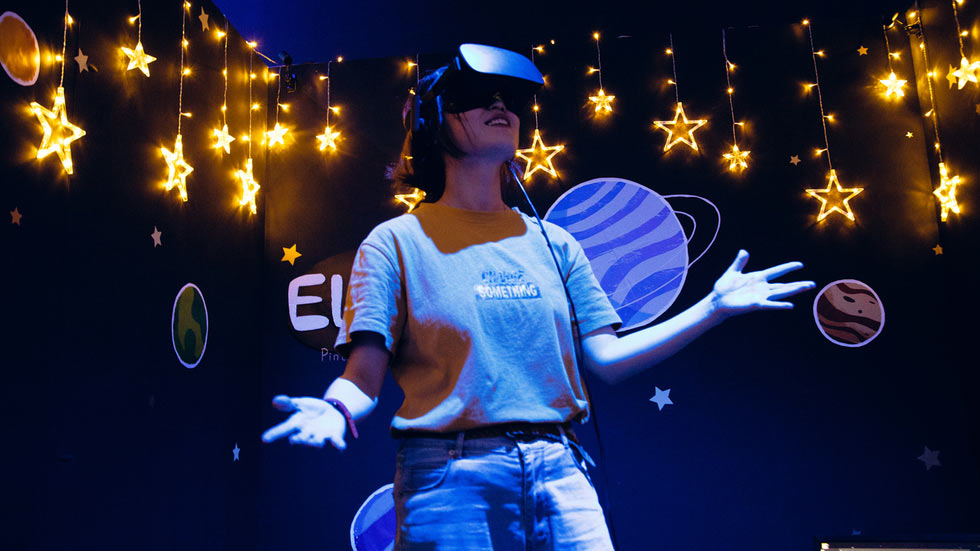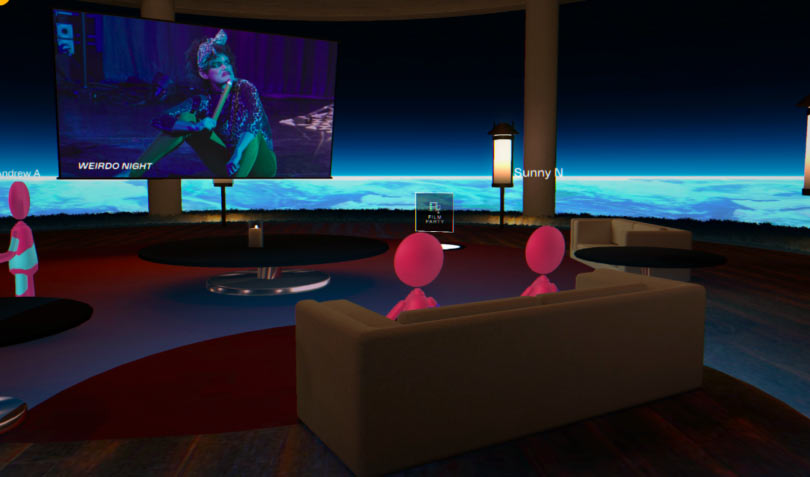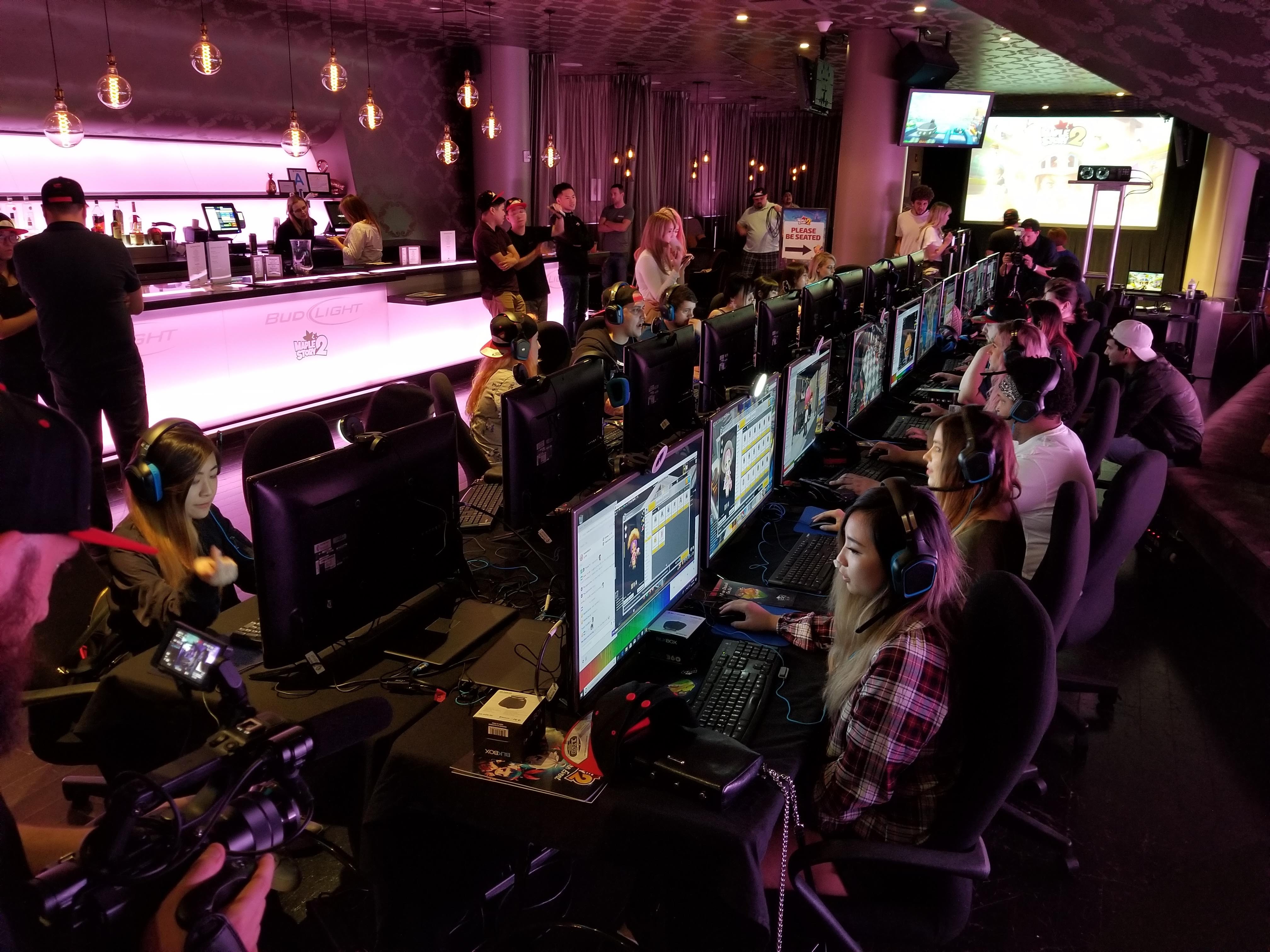4 Ways Virtual Reality is Changing How We Live, Work, and Play

Virtual Reality, or VR, is technology that creates an immersive sensory experience for its users. It requires the suspension of disbelief and combines that with innovative technology to “transport” users to a different place. Unlike a standard video game or a typical experience with 3D technology, VR requires wearing a headset in which users view a subject or location of their choosing — and then feel as if they’re physically there.
While VR came onto the technology scene with the initial aim to impact gaming, its reaches are extending far past that. Other entertainment industries and even serious career training courses are now utilizing VR to their advantage. While the technology continues to evolve, we’re focusing on four ways that we believe VR is changing how we currently live, work, and play.
Entertainment
We’ll start with the entertainment industry, since that’s where VR began. At the time of publication, VR technology has had another spike in popularity due to the impact of the coronavirus. This makes sense, of course, because VR allows users to experience a feeling of escape or connection during a time when we’re all dealing with more isolation than normal.
For example, users can get out of their homes (without physical leaving them) using VR. Many museums across the world are offering VR tours that can be accessed using VR technology. And now, we’re seeing art galleries and amusement parks offering VR experiences as well. If you can’t experience the real thing, VR tours can get you as close as possible to the feeling of the real thing.


Virtual tourism is another entertainment avenue that is made possible largely because of VR. And since many people aren’t traveling much at the moment, its importance is arguably more significant than ever. A VR headset can transport users to an array of locations, help them plan future actual vacations, or provide a sense of escape for a few moments.
Events
In line with the entertainment industry, the events industry may rely heavily on VR during the coronavirus pandemic. Since large in-person events are likely to remain cancelled for the foreseeable future (or at least until the latter part of 2021), VR offers a bridge of sorts for interpersonal connection. Virtual events have also been vastly improved due to new technologies and products in the past year, and participants require a more interactive experience.

Enter VR technology. By providing users a rentable headset, event participants can “meet” as if they are in an in-person setting. They can also utilize VR to participate in team-building games, attend virtual tours of places, and have one-on-one or small group meetings. VR can take what is generally a passive activity — viewing an online event — and make it into an interactive, immersive, memorable experience.
While we foresee (and hope!) that in-person events will take place again very soon, VR offers an innovative solution to help increase engagement for virtual or hybrid events.
Career and Job Training
While this application of VR is relatively new, job training is certain to become another means in which VR technology is deployed. Take, for example, the case study of Wal-Mart that Stanford University professor Jeremy Bailenson details in this piece in the Harvard Business Review. He explains that Wal-Mart utilizes VR to train employees how to properly use the in-store pickup kiosks. He notes that “VR reduced the training from eight hours to 15 minutes, with no drop in efficacy.” He found that VR may offer a cost-effective alternative to in-person training, and we believe that this is likely to expand to many other industries and companies.

High-stakes jobs also stand to benefit from VR technology-based training. Training surgeons could perfect their skills without risk to an actual human being. Firefighters could train without risk of harm. Pilots could practice mastering tricky landings without risk of an accident. In short, VR can help companies and industries move from risky, expensive trainings to options that are lower risk and cost-effective, yet still efficacious.
Education
The use of VR in many aspects of the education field is promising. Essentially, VR can take any passive educational lesson and turn it into an immersive sensory experience. While most people learn best through a combination of visual, auditory, and kinesthetic styles, it can difficult to present a combination of all of these in one lesson. Still today, in most colleges and universities, professors utilize a traditional lecture format in which to convey information. And while it’s been proven that active learning is more effective than passive learning, it’s hard to be “active” when listening to a lecture. VR can change this.
Picture this: in a middle school history lesson on the Pantheon, students don an Oculus Go headset and “walk” the streets of Rome. They approach the Pantheon, experience its scale, and view it in both its present day form and what it would have looked like long ago. We argue that this is much more influential when it comes to learning than simply looking at a photo of the Pantheon on a screen or in a textbook. With VR, second-hand knowledge becomes first-hand learning. Check out all the cool things ClassVR is doing!

With regard to secondary education, colleges and universities could utilize VR to offer campus tours for prospective students. Professors could assign VR-based group projects in which group members “meet” in a faraway setting or work to master a project or puzzle. While the pandemic continues, students could use VR to experience an in-person class setting while social distancing. In short, with creativity and the right equipment, the possibilities are nearly endless.
As VR technology evolves, we think that it will continue to change the ways in which live. Its promising advantages with regard to entertainment, work, and education may pave the way for this technology to become central to our lives.
About eTech Rentals
eTech Rentals a national technology solutions provider located in Southern California specializing in rental technology integration. eTech is committed to long-standing client relationships and consistent, reliable local service, trusted by expert event planners, film and entertainment production companies, and businesses in California and nationwide.
Learn more about eTech Rentals at: https://etechrentals.com/



